Sustainability
The NGK Group will contribute to the realization of society’s direction toward
"carbon neutrality," "a recycling-oriented society," and "harmony with nature"
through its business activities.
Contributing to the environment and society through our products
The NGK Group is working to contribute to society through its business and has positioned ESG as a foundation of management.
We stipulate our targets as contributing to carbon neutrality through products and services and achieving net zero CO2 emissions in our own activities by 2050.
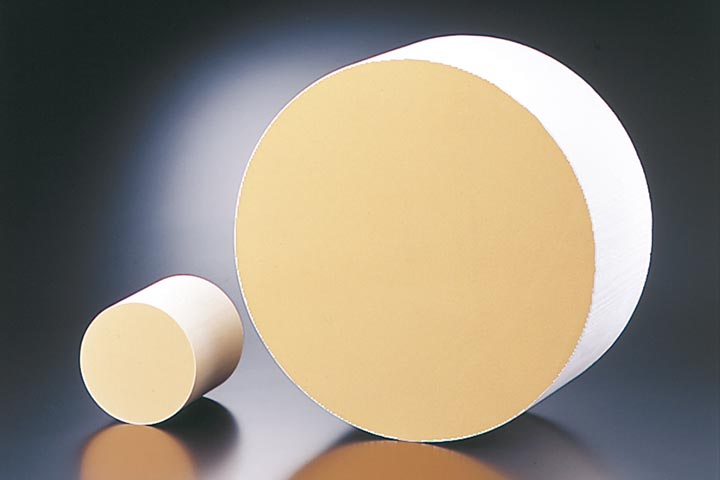 HONEYCERAMHONEYCERAM is a ceramic substrate for catalytic converters to purify harmful contents in the exhaust of automobiles. It carries a catalyst that detoxifies harmful substances by chemical reaction, and its honeycomb structure provides a greater contact surface area for the exhaust and thus gives better purifying performance.
HONEYCERAMHONEYCERAM is a ceramic substrate for catalytic converters to purify harmful contents in the exhaust of automobiles. It carries a catalyst that detoxifies harmful substances by chemical reaction, and its honeycomb structure provides a greater contact surface area for the exhaust and thus gives better purifying performance.NGK's HONEYCERAM eliminates a total of four million metric tons of NOx per annum, equivalent to double the annual NOx emissions in Japan.
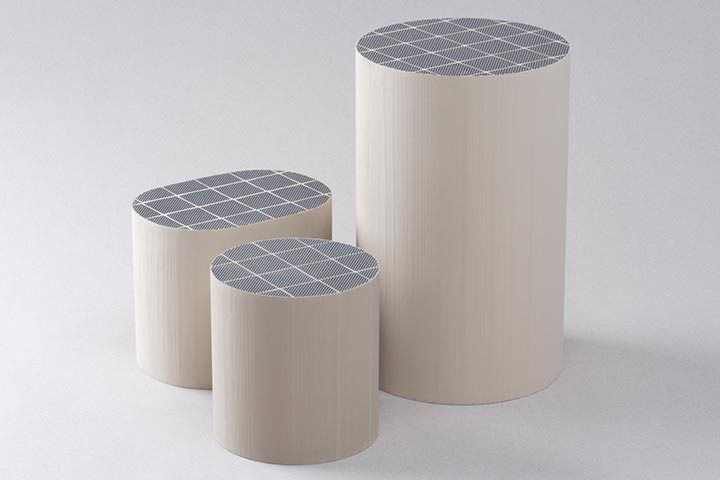 Diesel Particulate Filters (DPF)The DPF is a porous ceramic filter used worldwide in the exhaust systems of diesel vehicles. With a pore structure, the filter ensures particulate matter (PM) is captured to purify the exhaust emitted from diesel vehicles.
Diesel Particulate Filters (DPF)The DPF is a porous ceramic filter used worldwide in the exhaust systems of diesel vehicles. With a pore structure, the filter ensures particulate matter (PM) is captured to purify the exhaust emitted from diesel vehicles.
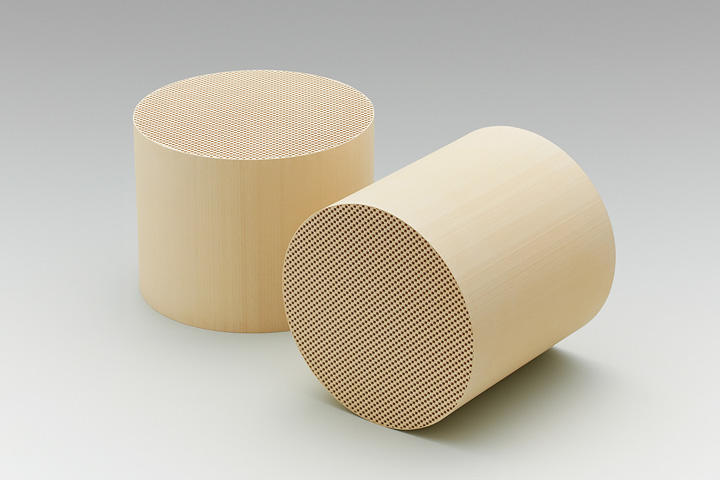 Gasoline Particulate Filters (GPF)GPFs are ceramic filters that remove particulate matter (PM) from the exhaust of gasoline-powered vehicles.
Gasoline Particulate Filters (GPF)GPFs are ceramic filters that remove particulate matter (PM) from the exhaust of gasoline-powered vehicles.We developed this filter based on diesel particulate filter (DPF) technology, and succeeded in producing a GPF that can achieve high performance (captures more PM) and low pressure loss (lower fuel costs and higher output) at the same time through the use of our proprietary micropore creation and control technologies.
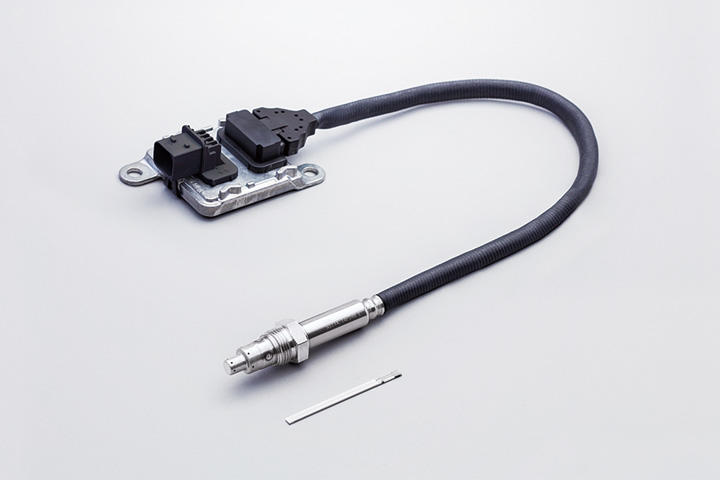 In-Vehicle High-Precision NOx SensorsNGK group developed the world’s first in-vehicle sensor to measure concentrations of nitrogen oxides (NOx) in exhaust in real time with high precision. Specifically, the sensor is capable of measuring NOx concentration at the parts per million (ppm) level and can thus detect even very small amounts of the noxious substance. The sensor supports precise control of the exhaust purification device used in diesel vehicles, which leads to a reduction in NOx emissions and helps to promote the use of clean diesel vehicles.
In-Vehicle High-Precision NOx SensorsNGK group developed the world’s first in-vehicle sensor to measure concentrations of nitrogen oxides (NOx) in exhaust in real time with high precision. Specifically, the sensor is capable of measuring NOx concentration at the parts per million (ppm) level and can thus detect even very small amounts of the noxious substance. The sensor supports precise control of the exhaust purification device used in diesel vehicles, which leads to a reduction in NOx emissions and helps to promote the use of clean diesel vehicles.
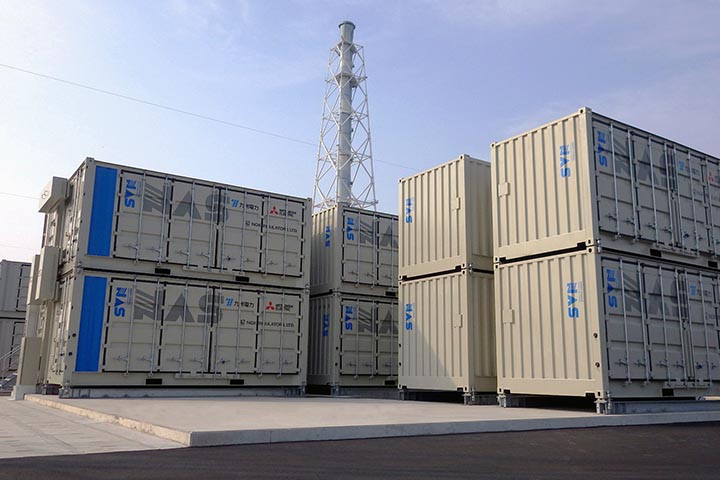 NAS BatteriesProviding clean energy that burns no fossil fuels and releases no CO2 emissions, renewable energy is on the rise worldwide. The NAS battery stabilizes fluctuations in the output of renewable energy such as wind and solar power -which are susceptible to weather conditions - by appropriately storing and discharging the electricity provided.
NAS BatteriesProviding clean energy that burns no fossil fuels and releases no CO2 emissions, renewable energy is on the rise worldwide. The NAS battery stabilizes fluctuations in the output of renewable energy such as wind and solar power -which are susceptible to weather conditions - by appropriately storing and discharging the electricity provided.
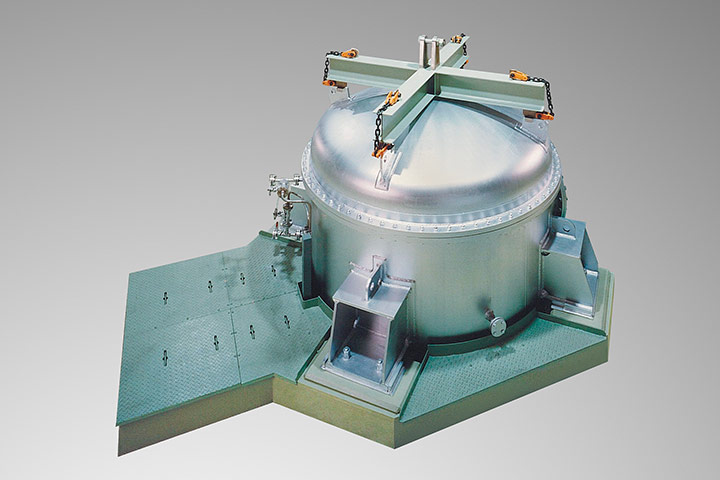 Low-Level Radioactive Waste Treatment SystemsNGK group has developed a wide range of systems to safely treat low-level radioactive waste generated from nuclear facilities and has supplied these systems to nuclear power stations and related facilities across Japan. The systems are developed utilizing NGK group’s proprietary treatment technology and high-performance filter-based dust collection technology.
Low-Level Radioactive Waste Treatment SystemsNGK group has developed a wide range of systems to safely treat low-level radioactive waste generated from nuclear facilities and has supplied these systems to nuclear power stations and related facilities across Japan. The systems are developed utilizing NGK group’s proprietary treatment technology and high-performance filter-based dust collection technology.We undertake a variety of engineering projects including design, manufacturing and site construction, and also provide a long-term maintenance service to deliver stable and high-level radioactive decontamination. NGK group thereby provides essential support for the safe and stable operation of nuclear facilities.
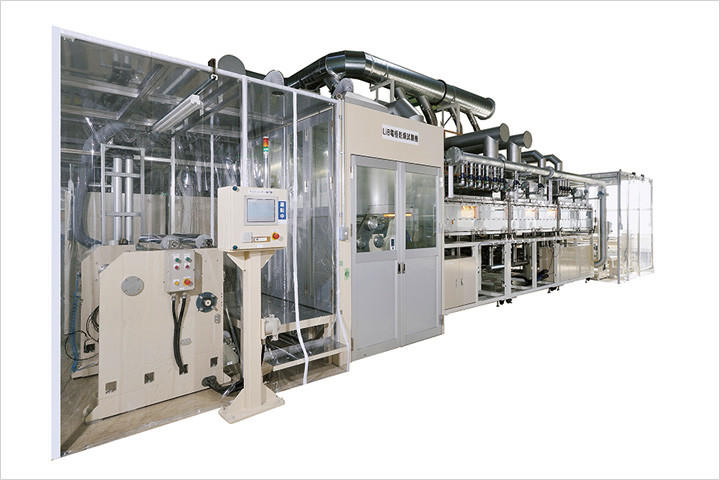 Wavelength Control Drying SystemsOur wavelength control drying system uses a proprietary heater unit developed in-house to promote the evaporation of solvents.
Wavelength Control Drying SystemsOur wavelength control drying system uses a proprietary heater unit developed in-house to promote the evaporation of solvents.This system uses specific infrared frequencies to effectively facilitate evaporation, shortening drying time to approximately 1/2 to 1/3 of that required for conventional drying methods using heat, and reducing power consumption by 30 to 50%.
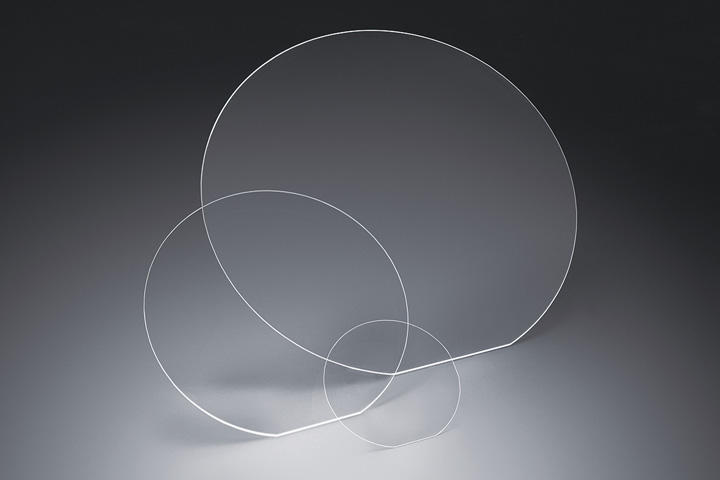 Gallium Nitride (GaN) WafersThis low-defect density gallium nitride (GaN) wafer uses NGK group’s original crystal growth method covering the entire wafer. With the Minamata Convention on Mercury going into effect in August 2017, there is expected to be high demand for high-output, high-efficiency semiconductor lasers using GaN wafers as a substitute for ultra-high-pressure mercury lamps. They are expected to see use in light sources for projectors, stadium lighting, car headlamps, and other products.
Gallium Nitride (GaN) WafersThis low-defect density gallium nitride (GaN) wafer uses NGK group’s original crystal growth method covering the entire wafer. With the Minamata Convention on Mercury going into effect in August 2017, there is expected to be high demand for high-output, high-efficiency semiconductor lasers using GaN wafers as a substitute for ultra-high-pressure mercury lamps. They are expected to see use in light sources for projectors, stadium lighting, car headlamps, and other products.
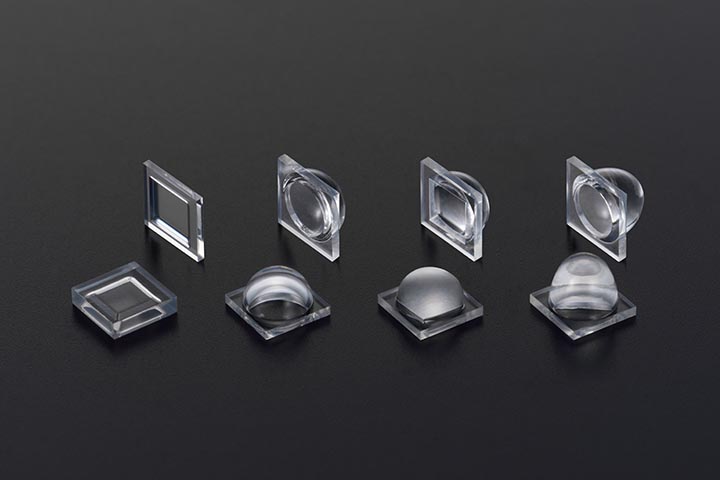 Micro-Lenses for Ultraviolet LEDsMicro-lenses for UV LEDs are transparent quartz glass lenses developed by NGK that are used in UV LEDs in place of mercury lamps. Mercury lamps are currently used in light sources used in applications such as the sterilization of water and air. However, factors such as the Minamata Convention going into effect are increasing the likelihood that mercury lamps will be banned and sparking interest in UV LEDs that do not use mercury.
Micro-Lenses for Ultraviolet LEDsMicro-lenses for UV LEDs are transparent quartz glass lenses developed by NGK that are used in UV LEDs in place of mercury lamps. Mercury lamps are currently used in light sources used in applications such as the sterilization of water and air. However, factors such as the Minamata Convention going into effect are increasing the likelihood that mercury lamps will be banned and sparking interest in UV LEDs that do not use mercury.
Aiming to be a corporate citizen that contributes to a better social environment
As we aim to realize our corporate philosophy, the NGK Group strives to build and maintain trusting relationships by communicating with diverse stakeholders and taking an interest in social issues in each country and region.
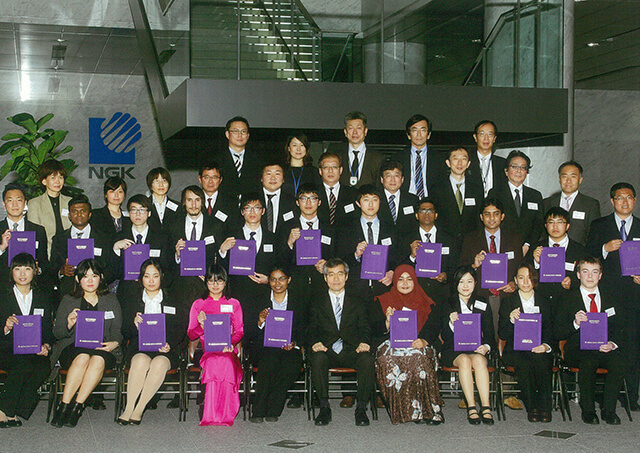 NGK Foundation for International StudentsDeveloping human resources capable of contributing to the progress of the international communityLearn more
NGK Foundation for International StudentsDeveloping human resources capable of contributing to the progress of the international communityLearn more (NGK - Corporate Site)
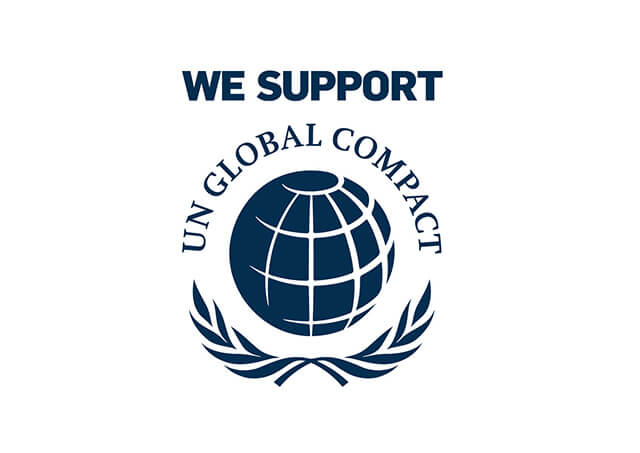 Signed on to the UN Global Compact
Signed on to the UN Global Compact
 Balancing between CO2 reductions and comfortable working environmentsThe Nagoya Office's administration/welfare building chosen as a Leading Project in Sustainable Construction (for Leadership in CO2 Reduction)Learn more
Balancing between CO2 reductions and comfortable working environmentsThe Nagoya Office's administration/welfare building chosen as a Leading Project in Sustainable Construction (for Leadership in CO2 Reduction)Learn more (NGK - Corporate Site)



